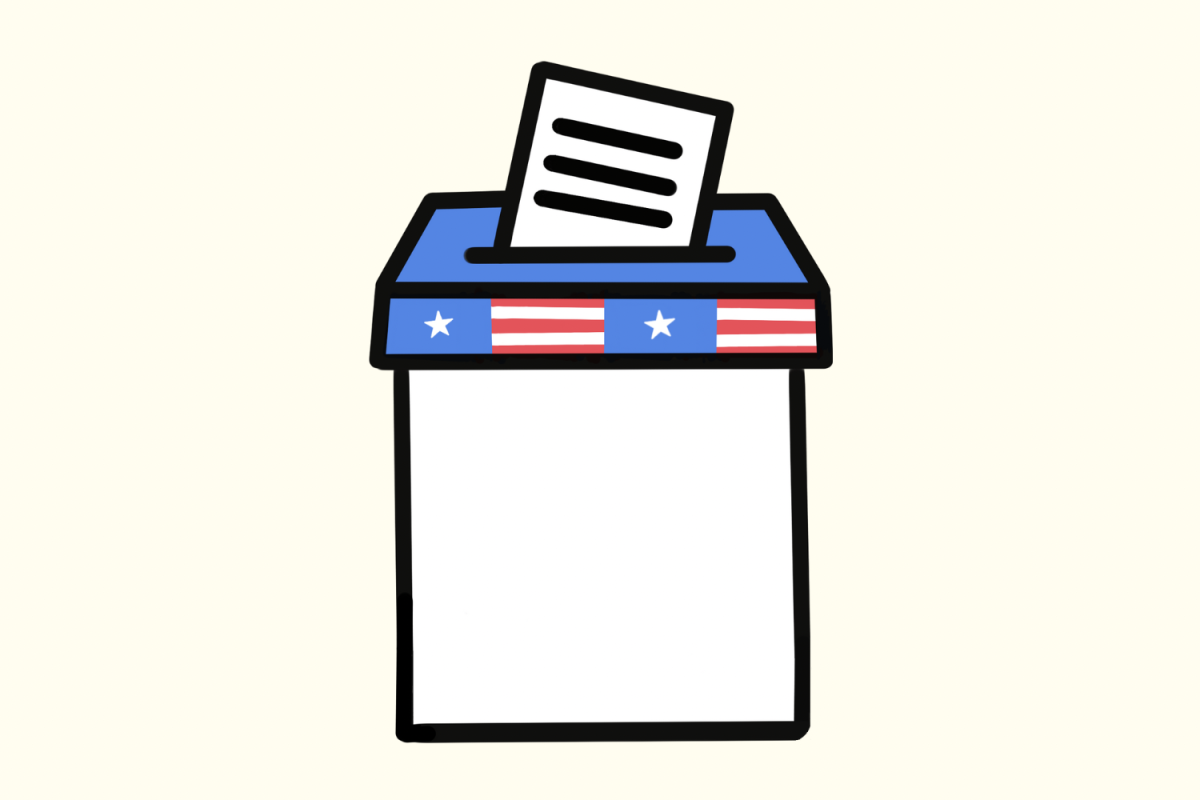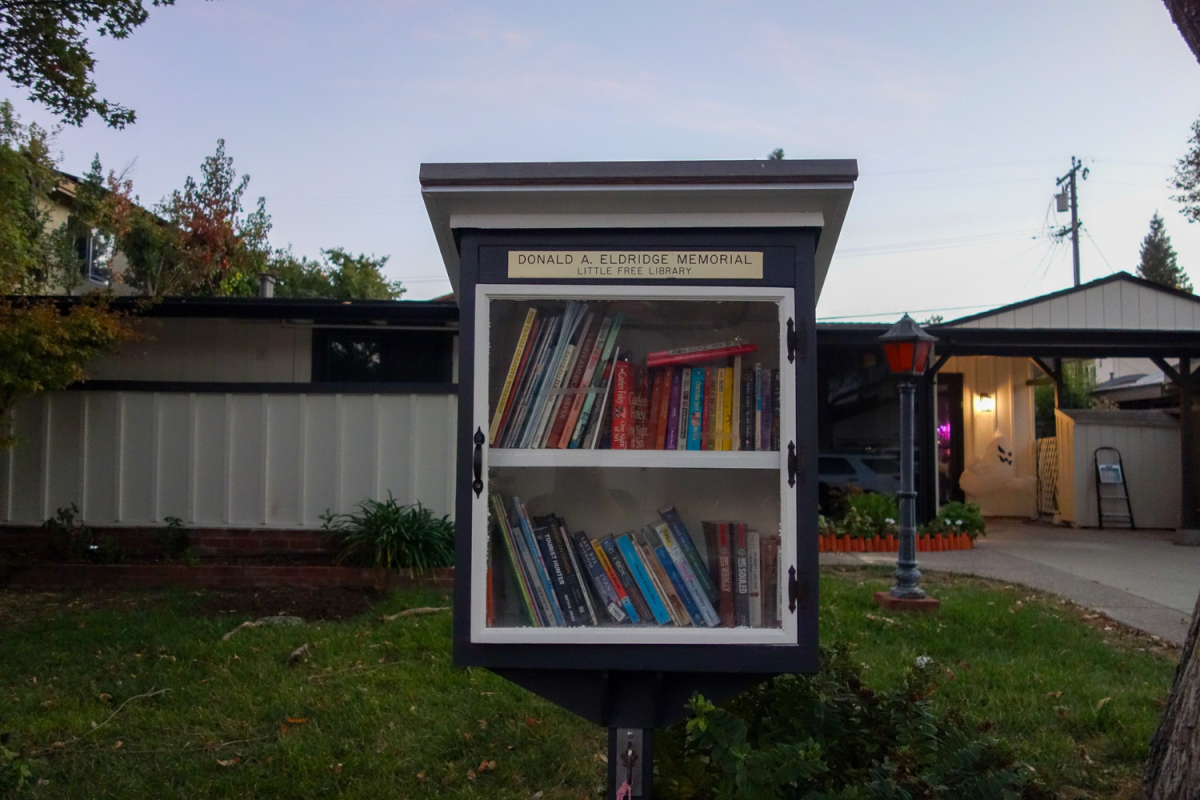What you need to know:
- Numerous Candidates at the San Jose City Council, California State Legislature, United States Congress and Presidential level are competing in the upcoming general election on Nov. 5th
- At the San Jose City Council level, 4 out of 10 seats are up for election, and there are highly competitive races for state Assembly District 26 and State Senate District 15
- At the US presidential level, the race between Donald Trump and Kamala Harris will depend on the swing states
*Candidates not directly quoted were unable to comment before publication.
Numerous candidates are campaigning for a seat in the San José City Council, California State Legislature, United States Congress and White House in November. For many candidates, months of mobilizing supporters, canvassing and mass outreach have built up to these pivotal moments, which will determine political leadership at the local and national levels for the next few years. With Election Day quickly approaching on Nov. 5, many voters prepare to select the candidates they feel are the most qualified.
San José City Council Elections
In San José, four out of the 10 City Council seats are up for election, and each seat is contested by two candidates.
In District 2, which encompasses South San José, educator Pamela Campos is running against retired sheriff’s sergeant Joe Lopez. In her campaign, Campos prioritizes the issues of youth homelessness and the high cost of living, emphasizing the needs of children and their families. Influenced by his former position as sheriff’s sergeant, Lopez hones in on community safety and homelessness and has announced goals to establish a more robust first responder presence.
“Supporting our children and families with the tools and resources they need to succeed is the best investment we can make as a city,” Campos said. “If elected, I am prepared to ensure our city is investing in our youth and families because that is how we build stronger communities.”
Neighborhood business owner Michael Mulcahy is competing against city commissioner Olivia Navarro for the District 6 seat, which oversees part of West San José. Both candidates highlight housing and public safety as top campaign priorities. Mulcahy proposes creating cost-effective modular shelters to address homelessness and aims to fully staff the police department in order to improve neighborhood safety. Navarro suggests investing in emergency housing for the homeless, expanding career development opportunities for adults and youth and providing more resources and training to first responders.
Incumbent Domingo Candelas faces Sergeant Tam Truong in the race for District 8 in East San José. Candelas centers his campaign around finding long-term solutions to homelessness and the high costs of living, such as investing in sustainable mental health and substance abuse treatment and building more affordable housing units. Truong has honed in on expanding job access, alleviating homelessness and expanding housing access.
In District 10, which includes part of South San José, incumbent Arjun Batra is running against senior councilmember George Casey. Like other candidates, Batra has made homelessness a significant campaign priority and has also advocated for more first responders and improved traffic safety near schools. Casey has called for lower taxes, the construction of more housing units near jobs and a stronger police force.
State Elections
Assembly District 26
At the state level, candidates are contesting for a spot in State Assembly and State Senate. The race to elect an assemblymember for Assembly District 26, which encompasses parts of Cupertino, Sunnyvale, Santa Clara and West San José, has intensified in the months leading up to November. Patrick Ahrens, current District 26 Assemblymember Evan Low’s district director, decided to run in the election after Low entered the District 16 congressional election. Ahrens is facing off against Santa Clara County Office of Education board member Tara Sreekrishnan.
Ahrens, who experienced housing insecurity and homelessness as a college student, has made affordable housing, healthcare, public safety and education his biggest campaign priorities. Rising community concerns about property crime and theft have also led him to prioritize public safety as a key campaign focus. As an advocate for reproductive rights who previously established a health clinic at De Anza College, Ahrens made quality healthcare accessibility another focus.
“I found it very interesting that the first time Patrick ever tried a kiwi fruit was because of a food stamp program,” said Ahren’s campaign manager Peter Allen. “His story resonates with me, and it touches on one of the most critical issues that we’re facing: the lack of affordability in our region.”
Sreekrishnan shares many of the same priorities as Ahrens, but with a particular emphasis on education, healthcare, insurance and housing. She centers her campaign around ensuring affordability in each of these areas. Sreekrishnan aims to invest in more mental health resources and high-quality early learning initiatives in order to ensure that students build a strong academic base. As a former cancer survivor, she envisions changes in healthcare, including establishing a universal healthcare system in order to reduce costs for patients. Like other candidates, Sreekrishnan aims to build more affordable housing to support the unhoused.
“Californians deserve financial relief, not more excuses,” Sreekrishnan said. “Residents deserve affordable childcare, housing and healthcare, yet these essentials remain out of reach for too many. I’m running to be a voice for working families in this district, and I’m ready to stand up to the special interests that are holding us back.”
State Senate District 15
Incumbent Democrat Dave Cortese is running against Republican Robert Howell in the race for State Senate District 15, which includes parts of Cupertino, Los Gatos, Campbell, Monte Senero and San José.
Cortese has continued to prioritize the issues he tackled during his time in office: housing affordability, homelessness, public safety, climate, transit infrastructure and education. In the state senate, he co-chaired Measure A, a $950 million affordable housing bond for Santa Clara County, and supported many county initiatives to transition to 100% renewable electric power. In primary and secondary education, Cortese hopes to expand mental health resources to students and parents and support students with disabilities. He also aims to increase funding for transportation infrastructure, including expressways, highways and the Bay Area Rapid Transit system. Howell, a staunch republican, previously ran in the general elections for the California Commissioner of Insurance in 2022 and the Santa Clara Valley Open Space Authority of District 1 in 2020. As a longtime Chief Executive Officer and Chief Design Engineer of Extran, a cybersecurity equipment manufacturer in Silicon Valley, Howell is very pro-business, having previously described himself as a “plain spoken businessman” when running to be Insurance Commissioner.
U.S. Senate Elections
Of the two U.S. senators currently representing California, one will be replaced following the November general election. Laphonza Butler was appointed senator by Governor Gavin Newsom after the death of former senator Dianne Feinstein in early 2023. However, in October 2023, Butler announced that she would not be running for reelection. Therefore, two new candidates are currently competing for her spot in the general election.
Former professional major league baseball player and Republican Steve Garvey is facing off against U.S. representative and Democrat Adam Schiff. Garvey centers his campaign around border security, the cost of living, homelessness, energy policy, education and national security. Schiff’s campaign focuses on housing, homelessness, high costs of living and environment.
Garvey believes in increasing border patrol funding in order to enforce stricter control over the southern national border. In response to the rising costs of living, Garvey proposes curbing federal spending to limit inflation and expanding the supply of housing for low-income families by supporting the federal low-income housing tax credit. Garvey supports Proposition 36, a ballot measure that, if passed, will implement stricter punishments for drug and theft crimes. On the issue of K-12 education, Garvey has pledged to pass legislation that provides tax credits for charitable donations that fund educational scholarships. He also supports a gradual transition to renewable energy but plans to increase leases for oil and natural gas drilling on federal lands.
Schiff promises to tackle the issues of housing affordability and homelessness by dramatically expanding the supply of affordable housing through increased federal investments and tax credits. He also aims to address economic scarcity in order to combat inflation by prioritizing the production of renewable energy and increasing the number of healthcare professionals. Schiff supports the U.S. Citizenship Act, which provides a pathway to citizenship for undocumented immigrants, and he plans to invest in more staff and judges to address immigration and asylum cases more quickly. Schiff also supports a ban on assault weapons and large-capacity gun magazines, striving for stricter, universal background check requirements. Regarding issues in our environment, Schiff promises to increase investment in renewable energy and end incentives, such as oil production, for the fossil fuel industry.
Presidential Race
In the U.S., Election Day on Nov. 5 will determine who will sit at the Oval Office desk for the next four years.
Former president and Republican candidate Donald Trump is running against vice president and Democratic candidate Kamala Harris. Initially, incumbent president Joe Biden was selected as the Democratic candidate for the presidential election, but after dropping out of the race in late July 2024, Harris was selected as the new democratic nominee.
Both parties have poured tremendous resources into campaigning and appealing to voters across the country. In the final stages of campaigning, Harris and Trump are focusing on reaching voters in the swing states of the election — states that could reasonably be won by either candidate. Both candidates have campaign events scheduled in the swing states of North Carolina and Georgia, and Harris also plans to campaign in Pennsylvania as of Oct. 30.
Harris and Trump have opposing views on many key issues. In their presidential debate on Sept. 10, the candidates clashed on economic issues, abortion rights, immigration, foreign policy and healthcare.
Harris’s economic proposals include giving a $6,000 tax credit for parents of newborns and a $50,000 tax break for new small businesses. Harris promised to sign the protections of Roe v. Wade, which protected the constitutional right to abortion and was overturned by the Supreme Court in 2022, into law if elected. Regarding the issue of immigration, she voiced her support for a bipartisan border bill that would hire more border agents, crack down on the flow of illegal drugs and prosecute transnational criminal organizations. Harris has expressed her support for a ceasefire and hostage deal when talking about the Israel-Hamas war, as well as her support for Ukraine in the Russia-Ukraine War. On the subject of healthcare, she promised to cap individual prescription drug spending at $2,000 per year. She has touted the Biden-Harris administration’s heavy investments in clean energy and manufacturing.
“It’s time for a newer, younger candidate to take office,” junior Alden James said. “I like how Harris addresses the American public. She really connects to the people and can understand the issues that impact them.”
Trump has vowed to lower taxes and impose tariffs on imports from other countries like China. He believes that abortion rights should be left to the states and supports In Vitro Fertilization. He has attacked the Biden administration’s handling of the border, saying that millions of terrorists and drug dealers were allowed to cross the border. He promised to crack down on undocumented immigration, claiming that illegal immigrants were destroying the country. Trump also criticized the Biden administration’s withdrawal of American troops from Afghanistan and their handling of the Israel-Hamas war. On the subject of the Russia-Ukraine War, Trump vowed to negotiate an end to the conflict and believes that European allies should be allocating more money to support Ukraine. He has denounced the Affordable Care Act, which aims to increase health insurance coverage for the uninsured, as an ineffective system of healthcare, and promised to replace it with a better plan.
“Personally, I favor Trump because I agree with his policies,” senior Joey Wan said. “His proposals to lower taxes would help the economy. He’s also very pro-business, and I think that would benefit the stock market and make people want to invest more.”
Recent polling shows extremely close outcomes between the candidates. According to ABC News FiveThirtyEight’s election poll tracker, Harris has a 1.4% point lead over Trump as of Oct. 30. Many polls find that the key swing states are virtually tied between the candidates, with new polls as of Oct. 30 showing that Harris has an advantage in Michigan, Wisconsin and Nevada, while Trump leads in Arizona, Georgia and North Carolina. Pennsylvania remains a tossup.





































































